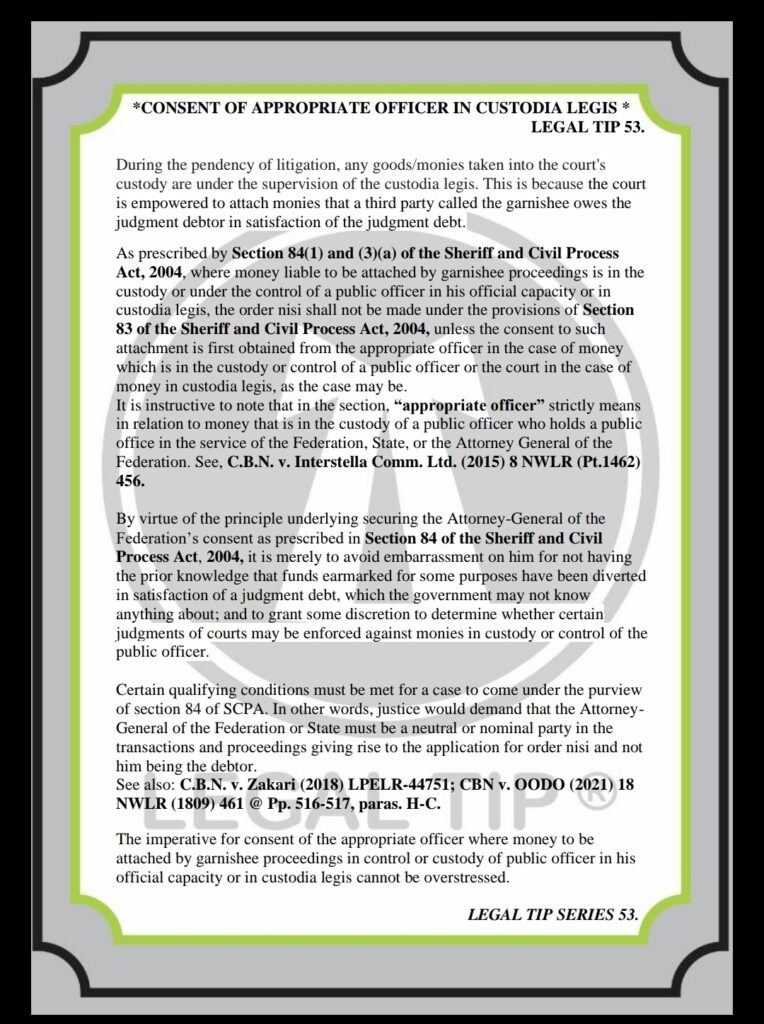During the pendency of litigation, any goods/monies taken into the court’s custody are under the supervision of the custodia legis. This is because the court is empowered to attach monies that a third party called the garnishee owes the judgment debtor in satisfaction of the judgment debt.
As prescribed by Section 84(1) and (3)(a) of the Sheriff and Civil Process Act, 2004, where money liable to be attached by garnishee proceedings is in the custody or under the control of a public officer in his official capacity or in custodia legis, the order nisi shall not be made under the provisions of Section 83 of the Sheriff and Civil Process Act, 2004, unless the consent to such attachment is first obtained from the appropriate officer in the case of money which is in the custody or control of a public officer or the court in the case of money in custodia legis, as the case may be.
It is instructive to note that in the section, “appropriate officer” strictly means in relation to money that is in the custody of a public officer who holds a public office in the service of the Federation, State, or the Attorney General of the Federation. See, C.B.N. v. Interstella Comm. Ltd. (2015) 8 NWLR (Pt.1462) 456.
By virtue of the principle underlying securing the Attorney-General of the Federation’s consent as prescribed in Section 84 of the Sheriff and Civil Process Act, 2004, it is merely to avoid embarrassment on him for not having the prior knowledge that funds earmarked for some purposes have been diverted in satisfaction of a judgment debt, which the government may not know anything about; and to grant some discretion to determine whether certain judgments of courts may be enforced against monies in custody or control of the public officer.
Certain qualifying conditions must be met for a case to come under the purview of section 84 of SCPA. In other words, justice would demand that the Attorney-General of the Federation or State must be a neutral or nominal party in the transactions and proceedings giving rise to the application for order nisi and not him being the debtor.
See also: C.B.N. v. Zakari (2018) LPELR-44751; CBN v. OODO (2021) 18 NWLR (1809) 461 @ Pp. 516-517, paras. H-C.

The imperative for consent of the appropriate officer where money to be attached by garnishee proceedings in control or custody of public officer in his official capacity or in custodia legis cannot be overstressed.
LEGAL TIPS is anchored by Ms CIA Ofoegbunam, an Abuja-based lawyer who is passionate about legal practice. LEGAL TIPS offers quick hints on substantive law, as well as rules of practice and procedure, and serves as a handy reference guide to lawyers, especially in court. Published on a weekly basis, the LEGAL TIPS Series is CIA’s modest contribution to legal development in Nigeria



57665 438890I like this site really considerably so a lot wonderful info. 48726